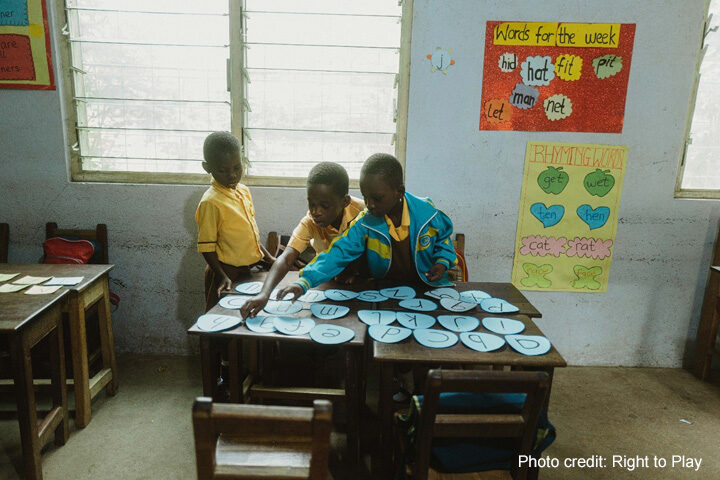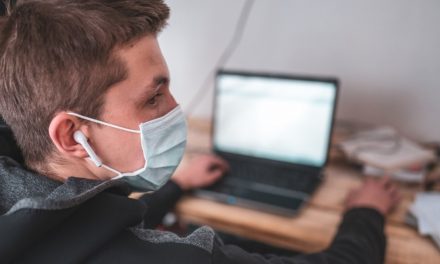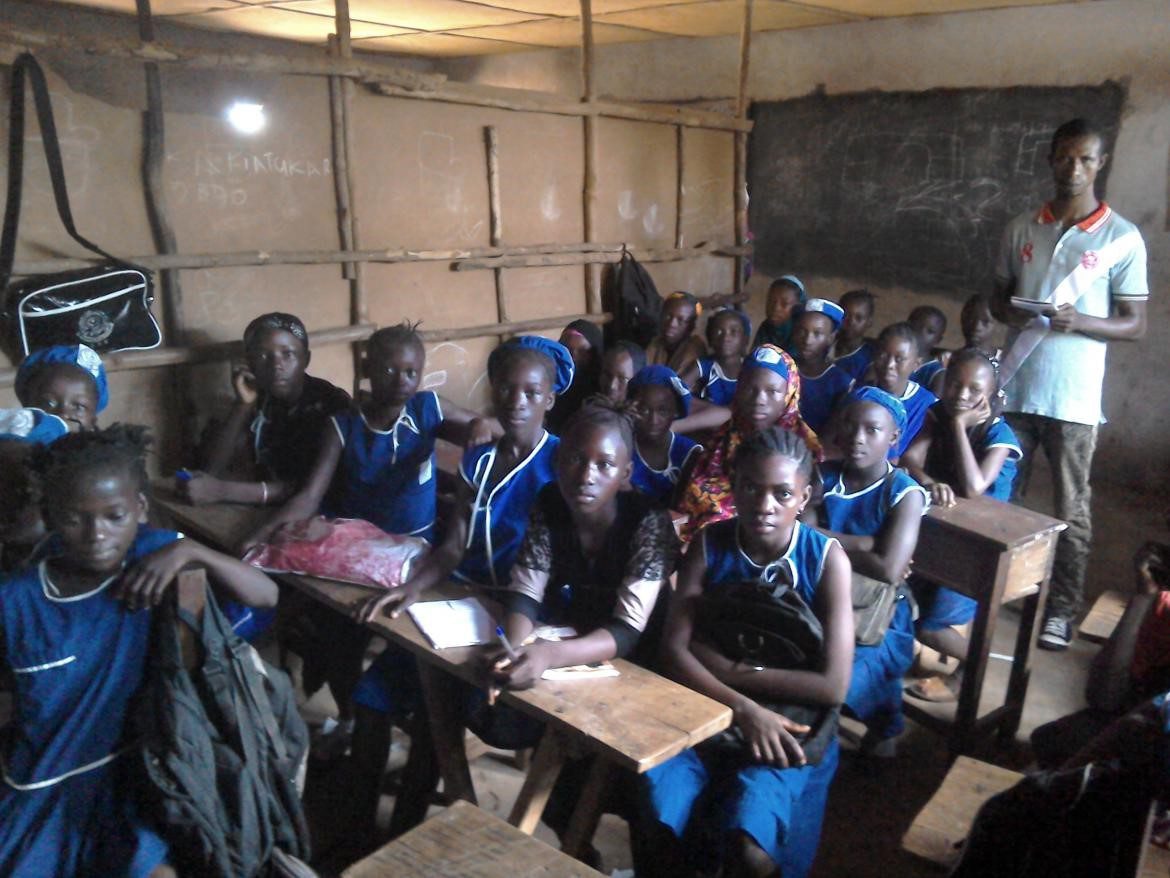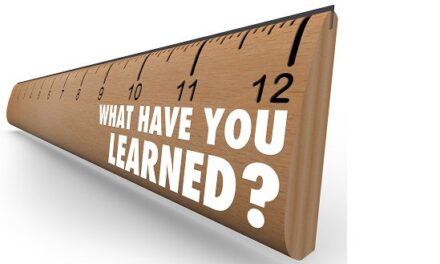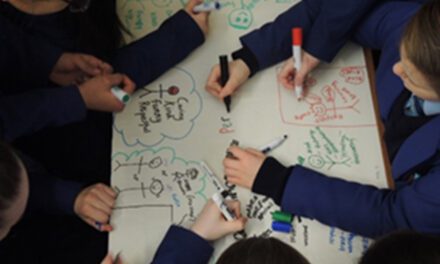This blog was written by Dina D. Fajardo-Tovar and Paola Garcia-Chinas (PhD candidates at the University of Cambridge and evaluation consultants at Cynosure Evaluation) in collaboration with Eric Opoku (Director of Impact at Right to Play International). This team together with Siti Nadiah Binti Mohammad Johari (PhD candidate, University of Cambridge), Ashley Craft, and Might Kojo Abreh (Cynosure Evaluation) collaborated to evaluate the outcomes and lessons learnt from two key projects developed by Right to Play in Ghana.
Play-Based Learning (PBL) is a child-centred approach actively involving children and adults in creating meaningful learning experiences. It is a core component of holistic education, fostering cognitive, social, emotional, and physical development essential for lifelong learning. With a growing recognition worldwide, many organisations advocate for integrating PBL into preschool and primary education through projects, often through providing teacher training and classroom resources. In this blog post, we share key lessons from the implementation and evaluation of two programmes led by Right to Play to implement PBL in Ghana.
Right To Play is a global leader in play-based learning programmes, enhancing the education, well-being, and resilience of children. For over 25 years, Right to Play has been operating at the intersection of development and humanitarian response, delivering programmes in 14 countries across Africa, Asia, and the Middle East, reaching children in some of the world’s most challenging environments and helping communities recover, rebuild, and thrive long-term. Right to Play’s efforts are supported by seven national offices in North America and Europe, driving global partnerships and resource mobilisation.
Right to Play implements a multi-faceted programme model that includes direct delivery, partner scaling, and capacity building across four key areas: early childhood education, holistic foundational learning, gender equality, and psychosocial support. For more on Right to Play’s impact, you can explore the Annual Report and visit the website: www.righttoplay.com.
In Ghana, Right To Play implemented two major play-based education programmes: the Gender-Responsive Education and Transformation (GREAT) Project ( 2018 – 2023), and the Partners in Play (P3) Project (2019 – 2024).
The GREAT Project enhanced education quality across 139 schools in Volta, Greater Accra, and the Northern Region, reaching 34,646 students (Kindergarten to Primary 6), equally split between boys and girls. The project strengthened 946 teachers’ capacity to integrate gender-responsive play-based learning (GRPBL) into their teaching to improve foundational learning skills in literacy, numeracy and socio-emotional learning. The P3 Project, implemented in partnership with the Ministry of Education and community-based organisations, expanded the GRPBL mainstreaming into more Ghanaian schools working directly in seven districts across three regions and with technical support in 55 districts across 13 regions. It focused on institutionalising PBL within the Ghanaian education system at both pre-primary and primary levels to benefit 100,000 teachers and 3.37 million children aged 4-12.
A recent analysis of these projects found that PBL, through three core dimensions — problem-solving, social connectedness, and a positive emotional climate— enhances learning outcomes, particularly in literacy, as well as socioemotional skills, such as resilience, leadership, and pro-social behaviours. Teachers in both programmes recognised the value of play in boosting learners’ interest, active participation, and collaboration, leading to positive attitudes toward incorporating PBL into their classrooms. Furthermore, the GREAT project also supported an increased integration of GRPBL in in-service and pre-service teacher training, which enhances teachers’ practice using this approach (see the Learning Brief here).
Together, these programmes strengthened teaching quality, student engagement, and gender-responsive learning, shaping a more inclusive and dynamic education landscape in Ghana. Through analysing these programmes, we have gained valuable insights for future projects that could also benefit other organisations working in similar contexts. Here, we share the key lessons we have learned:
Programme design
- Programme designers should consider structural inequalities within schools to enhance programme effectiveness. This includes allocating sufficient resources for materials, training on classroom management strategies, and guides for adapting playful learning ideas to lesson plans and class conditions. Additionally, designers could advocate for teachers’ time to plan, implement, and participate in training and improving classroom and school resources.
- The connection between PBL practices needs to be reinforced against the educational objectives. The programme designers must explicitly show how play and its dimensions are aligned with literacy and numeracy learning outcomes, curriculum standards, learning objectives and lessons to ensure consistency and a smooth integration of PBL into practice.
- Programme design should promote the consistent and tailored use of PBL methodologies to enhance holistic learning outcomes. Designers must collaborate with other organisations, local teacher trainers and educators to develop and refine PBL in alignment with education system guidelines and curriculum for holistic learning and development.
Programme implementation
- Enhance the fidelity, intentionality, and focus of PBL by fostering more consistent and tailored utilisation of PBL methodologies within a comprehensive framework – explaining what PBL is, what it looks like in the classroom, and how it can be assessed and observed. This should be accompanied by raising awareness strategies among parents, teachers, and communities of the benefits of play in the classroom.
- Guidance should be provided to help overcome barriers to adopting PBL by offering practical strategies for sourcing or improvising materials, adapting activities to local contexts, and implementing effective classroom management techniques. These strategies should address challenges such as large class sizes, ensuring that PBL remains accessible and effective in diverse educational settings.
Programme monitoring and evaluation
- Establish and use consistently a robust framework for observing and monitoring PBL by defining expected teacher behaviours, classroom implementation, assessment and observation criteria. Standardising data collection and analysis will ensure consistency and reliability across contexts. Additionally, setting specific performance indicators will help track progress, assess impact, and guide data-driven improvements to enhance the effectiveness of PBL initiatives.
Programme stakeholders and recipients (governments, organisations, schools, etc.)
- National governments supporting or wanting to implement these types of interventions should incorporate PBL into headteacher and teacher training policy by embedding it into pre-service and in-service training, emphasising its role in holistic development and learning outcomes. Additionally, ensuring access to necessary materials will support the successful implementation of PBL in classrooms.
- A holistic education model needs to integrate PBL into national policies and value socio-emotional skills alongside academic outcomes. This involves enhancing pre-primary and primary education to include socio-emotional learning and life skills, building on evidence from successful PBL programmes. Additionally, it is important to define in the curriculum the linkage between play constructs and learning outcomes and showcase this among teachers and headteachers to enhance awareness and buy-in of PBL.
- Collaboration with organisations engaged in PBL should aim to establish a shared vision that integrates playful learning activities with the national curriculum and learning objectives. This partnership should provide strategic guidance to strengthen existing frameworks and programmes, ensuring alignment with educational goals. Promoting collaboration and knowledge-sharing among stakeholders will help refine best practices and create a supportive network, ultimately enhancing the effective and consistent implementation of PBL in schools.

